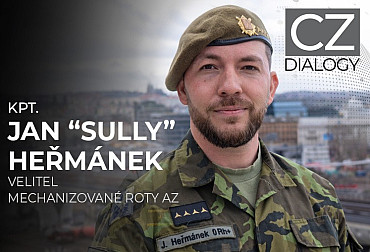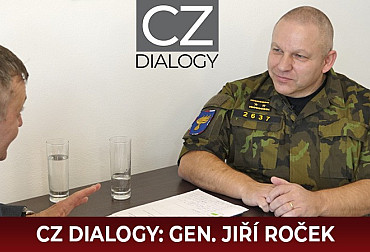David Koláček: The Czech army today clearly follows the traditions of the First Republic army
The famous quote "Those who do not remember the past are doomed to repeat it" is doubly true in matters of national security and defence. The bearers of this reality are the people who have personally lived through historical conflicts and have had the opportunity to share their experience with the next generation. For our generations, who can no longer personally remember the world wars, these memories are available in museums and historical publications. Some of us draw information about history directly from materials in our family collections, as is the case with the family of Army General Sergěj Jan Ingr - a Legionnaire, who took part in all three Czechoslovak resistance movements abroad and who, after the end of the Second World War, was denied the honors he rightly deserved when he returned to his homeland. His great-nephew David Koláček reminisced about his great-uncle Sergěj Jan Ingr in the next episode of our CZ DIALOGUES discussion program.
Video: Interview with David Koláček, great-nephew of Army General Sergěj Jan Ingra / CZ DEFENCE
Jan Ingr was born on 2 September 1894 in Vlkoš in the Kyjov district. He started his military career in 1913 and logically the First World War interfered with his plans. In September 1915, he was captured by Russian forces at the front. In 1916 he transferred to the Czechoslovak Legion at the rank of lieutenant, and in July 1917, he took part in the famous Battle of Zborov. In October 1917, he moved to the French Legion and in August 1918 to the Italian Legion. As a battalion commander of the 33rd Czechoslovak Rifle Regiment, he returned to his homeland in December 1918. In 1919, he actively participated in the liberation of Slovak territory and the securing of Těšín. In 1938, he was appointed to the rank of division general. After the occupation in 1939 he co-organized the underground army Defence of the Nation. In June 1939 he left for the foreign resistance. Sergěj Jan Ingr was instrumental in organising the Czechoslovak armed forces. In August 1939, he established and headed a military office at the Czechoslovak embassy in Paris, which was transformed into the Czechoslovak Military Administration in November. He personally participated in the organization of the evacuation of soldiers from France. From 1940 to 1944, he served as Minister of National Defense of the Czechoslovak government-in-exile. He always defended the real needs of the state and the army over partisan interests. From September 1944 until April 1945, he served as Commander-in-Chief of the Czechoslovak Armed Forces. In September 1947 he was promoted to the rank of army general. In December 1947 he became ambassador to the Netherlands. In response to the February communist coup, he resigned as ambassador at the beginning of March and lived in London and later in the USA. He became a member of the Council of Free Czechoslovakia and organised the anti-communist resistance. Following the Western services, he built up an intelligence service in exile. From 1949 he was a consultant to the US government. He died suddenly on 17 June 1956 in Paris of a heart attack.
David Koláček learned about the existence of General Ingr from the story of his aunt Anežka. "She was actually the general's ward and took care of his written estate; she spoke about him very often. Then, of course, after the revolution, when it was free to talk about it, I became intensely interested in it, and after my aunt's death I received part of his written estate," says the general's great-nephew.
A large part of Ingr's family connected their lives with the army. "Including my father, who studied at the military academy in Hranice before the war. My grandfather, who married General Ingr's sister, was a legionnaire. So the history of the family has been linked to the army for several generations," explains David Koláček, adding that the legionary tradition is still in the family today. The basis of these traditions are memories, respect, and pride. "My grandfather in particular spoke about his time in the legions. I was a child at the time, so it was fascinating to me what the legionnaires had to go through, and especially how they maintained the ethos of patriotism, which may sound like a cliché today, but I consider it extremely important," adds David Koláček.
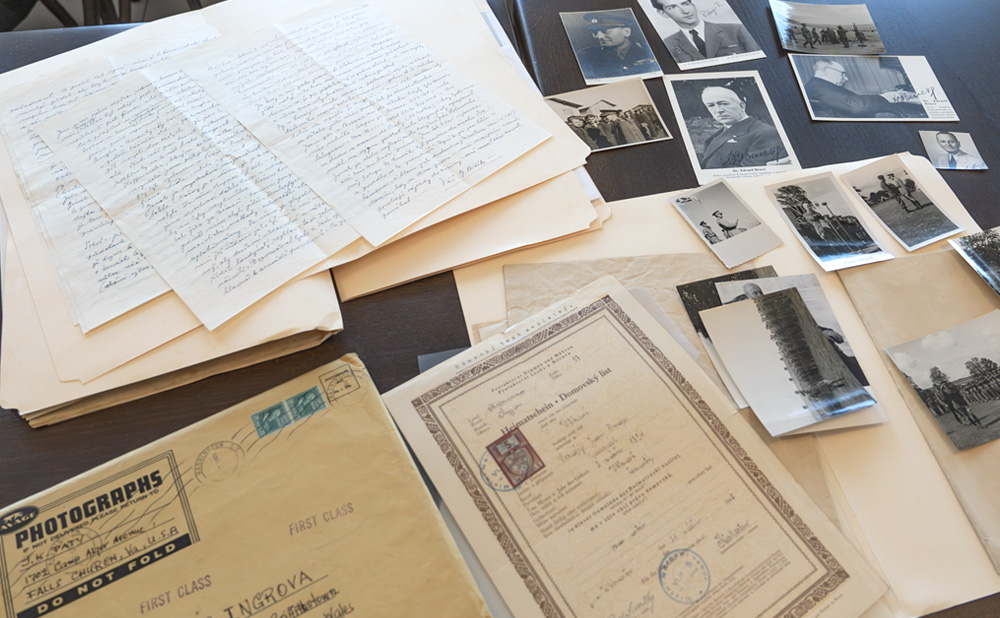
Unfortunately, not only wars but also politics intervened in the lives of General Inger and his peers and fellow soldiers. This is evidenced not only by the close friendship of Gen. Ingr's close friendship with Gen. Heliodor Pika, or his controversial relationship with Ludvík Svoboda. Both were legionnaires but fought on different fronts. Svoboda fought on the eastern front under the influence of the Soviet Union, while Ingr worked on the western front. As Minister of Defense of the government-in-exile, however, he was in charge of both Czechoslovak corps. According to Koláček, relations with Ludvík Svoboda were controversial. "My uncle's political orientation was the opposite of Svoboda's. And I think historically there were coordination problems. Svoboda, under the influence of the communists, did not respect subordination and his subordinate role to the minister and then to the chief of the general staff. The way Svoboda operated in Russia under the influence of the Communists was one of the main reasons why my uncle sent Píka to Moscow in agreement with Beneš. Ingr and Píka were great friends, and their fates, had it not been for President Beneš, might have been very similar. So we can say that President Beneš saved his uncle's life," Koláček says, and goes on to describe the biography of General Ingr, which was signed by the Communists.
General Ingr began as Minister of Defense in the government-in-exile in London, was dismissed as Minister in 1944, and appointed Chief of the General Staff of the military forces. "After the Košice Government Agreement, he was removed from that post as well. And actually, he was already removed by Beneš at that time, but the document we have in his estate had Fierlinger's countersignature," David Koláček explains. Why Ingr was unacceptable to the Soviets is obvious at a glance. "His absolute pro-Western orientation was absolutely clear, because he cooperated very intensively with Churchill, or rather with Churchill's government. Even, if I remember correctly from what I learned from my father, they were personal friends. This pro-Western orientation was completely unacceptable to the communists, and they tried to throw sticks under his feet," David Koláček recalls his memories of his great-uncle. It all culminated in the post-war appointment of Ingr as ambassador to the Netherlands. "Beneš so-called cleaned him up or moved him to The Hague as ambassador extraordinary in December 1947. This saved his life, because if he had not been in The Hague, he would probably have ended up like General Píka," Koláček adds.
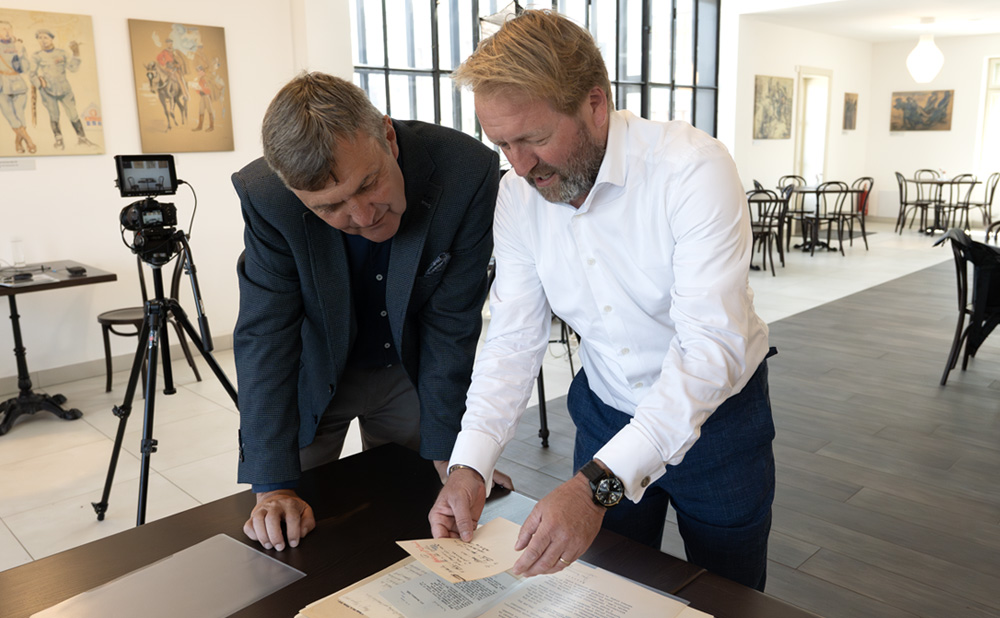
Army General Sergěj Jan Ingr undeniably contributed to the development of such concepts as defense, security, and the Czech state. "He valued freedom and democracy because he experienced what it means to fight for freedom and democracy. He was a loyal collaborator of President Beneš and had an absolute pro-Western orientation, that is, an orientation towards democracy. I think his contribution was due to the fact that he was clear about what was right and what was wrong and what the meaning of the words homeland, democracy and freedom were. And I think that these are still relevant concepts today, and we must value them and be prepared to fight for them," says the general's great-nephew David Koláček.
We were interested in how General Ingr, who contributed to the revival of the Czech army in two world wars and who is nominated for the Order of the White Lion in memoriam this year, would view the state of the Czech army today. "I think he would certainly feel a sense of extraordinary pride because the Czech army today is clearly following the traditions of the First Republic army. And I think it would be extremely important for "uncle" (as he was called in David Koláček's family, editor's note) that the concepts of freedom, democracy, and homeland are being defended again," says the great-nephew of Army General Sergěj Jan Ingr.
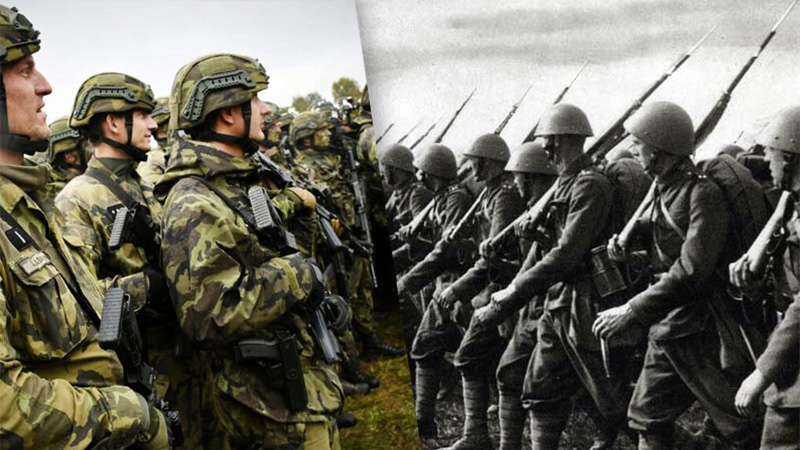
In the interview, we also talked about how Gen. Ingr got his first name Sergěj, or what was the war and post-war fate of the extended Ingr family. If you are interested in more details about General Ingr, listen to the full interview at the beginning of this article.















